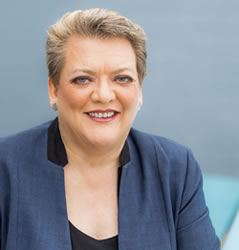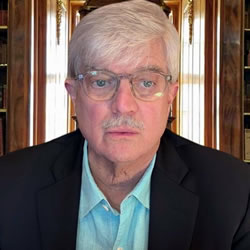Your expert disclosure is due next month – now is when you should start thinking about retaining an expert, right? While every case is different, the “just-in-time” engagement of an expert may not be the best choice for you or your client. Would it surprise you to know that some of the most experienced attorneys specializing in defense cases involve their forensic accounting expert as soon as they are engaged in a case? There is a very good reason to utilize the strategy of involving your expert early in your case: it leverages the expert’s work to your advantage, and increases your chances for success.
There are two ways to use expert services to benefit your client: the consulting expert, and the testifying expert. In some cases, the same individual can serve in both capacities, but there can be risks to this strategy, so it’s important to be clear about the desired outcome for your case when you select and retain your expert. In other words, begin with the end in mind. This article will discuss the forensic accounting expert, but these same strategies apply to other types of expert witnesses in a variety of fields, including medical experts, psychologists, accident reconstruction experts, engineers and other forensic experts. The consulting expert is a member of the legal team whose job it is to support the advocacy of the attorney.
The consulting expert identifies the strengths and weaknesses in the client’s position with respect to the evidence, suggests alternate theories of the case based on the evidence, explains accounting concepts and terminology and sheds light on the potential ramifications of the accounting transactions. Although the consulting expert’s work is typically protected by attorney-client privilege, if that expert later testifies, the privilege will almost certainly be pierced and all of the expert’s work product and communication may be subject to disclosure. A savvy consulting expert will assist the attorney in balancing between potential discovery concerns and any desire for written work product, and will keep their emails, notes and files with the potential of expert testimony in mind.
For example, in a case including allegations of accounting malpractice, embezzlement or fraud, the forensic accountant will analyze the documents, and will then meet with the legal team, and together they will review the accounting records. The expert can assist the attorney in obtaining documents and discovery that the attorney might not have considered without the expert’s advice. The consulting expert may give meaning to documents in discovery which the other side didn’t analyze or understand, and the expert can suggest the acquisition of other documents which the plaintiff failed to obtain. This additional evidence can sometimes make or break the case.
Why hire the consulting expert when you are first engaged, even before it’s known whether or not your case is going to trial? The consulting expert can conduct an assessment of the issues of concern and give you an idea of your client’s exposure. This information, received in advance of the exchange of discovery, makes you a more effective advocate for your client.
Unlike the consulting expert who is part of the legal team, the testifying expert is a neutral who has no advocacy support role. Although you don’t need the testifying expert quite as early as you will wish to engage the consulting expert, you will still be well-served to call on a testifying expert as early as possible. If you first engage the expert two weeks before disclosure, you will get a very “qualified” opinion – that is, an opinion that is full of “qualifiers”. When you give your expert limited time to examine records and evidence, they must qualify their opinion with words or phrases such as “probably”, “most likely”, “from my initial analysis” or “based on my limited test work”. Such qualifiers reduce the strength of your expert’s opinion, and can subject their work to potentially more difficult cross-examination. Engaging your expert after discovery and disclosures are complete means that when your expert requests other documents that would be helpful, you may not have recourse to get them; and, even if you can obtain them, you may risk disclosing your trial strategy.
Examination and analysis of documents and evidence, whether accounting records or some other evidence to be reviewed by an expert, will take time. Very often the expert will request records that the attorney will not have obtained; record production and discovery take additional time, and asking your expert to produce an opinion with only a portion of the relevant evidence can result in an incomplete opinion. The earlier you hire your expert, and the more time they have to examine or test records and develop their complete opinion, the greater their ability to provide an opinion which will benefit your client.
Hiring your testifying expert early gives you one other tactical advantage – if they work through the evidence and their opinion is contrary to your client’s interests, or if they discover additional evidence that the plaintiff didn’t find but that could be very damaging to your client – you still have time to change case strategies, conduct further investigation, negotiate a settlement or take other actions to try to better your case. If you’ve waited until the last minute to hire the expert, there may be insufficient time to alter your case strategy.
Where should you find your expert? Whether you’re seeking a consulting expert to strategize as part of the legal team, or a testifying expert to give their neutral opinion in court, the best expert referrals come from respected attorneys who have worked closely with the expert and their firm. Experts who volunteer as speakers for CLE hours are a great way to meet experts, and you’ve already seen the professional persona they’ll depict on the stand as a speaker. Whether they are engaging and informative, or dry and plodding as an instructor, this is how they will likely be perceived by the jury. If you meet a potential expert who is a sponsor or vendor at a legal conference, make sure you are speaking with the expert themselves, not a marketing person or lower level staff member.
There are websites that accept fees from individuals to promote them as national experts. While some of these experts are exceptionally qualified, others are not well-respected. Be wary of any expert who won’t give you fifteen minutes of their time in a free consultation to discuss the general facts of your case to determine their suitability and experience.
Highly qualified experts are in high demand, and are booked out months and sometimes a year or more in advance. Waiting until a few weeks before the expert disclosure is due means that you risk the expert being unavailable, or worse, finding that your preferred expert has already been retained by the other side. If your expert doesn’t ask about your client and party names to check for conflicts in the initial conversation, you should be cautious – you might be talking to the expert already retained by the plaintiff’s counsel (or this expert doesn’t have a good understanding of legal conflicts).
Whatever specialty you require, seek out an expert who routinely works both sides of the aisle, who is known for the integrity of their opinion regardless of which side hired them, and who can explain technical material without using industry jargon or terminology that the jury will find confusing or downright intractable. Finally, listening to your expert explain accounting or other technical material should not be an experience akin to watching paint dry – if you don’t find the expert’s explanations and discussions enlightening and interesting, neither will your jury.
Is it ever too soon to start seeking out an expert? If you’re going to specialize in a particular area of law, it might be worth your time to seek out experts in that specialty even before you have a specific case. When it comes to engaging an expert, whether as a consultant or as a testifying expert, the earlier in the case you retain them, the greater the likelihood that they can assist you in your quest to obtain the best possible outcome for your client..
Beth Mohr, CFE, CAMS, CCCI, MPA, PI, is a Law Enforcement / Police Misconduct expert with over 30 years of sworn and non-sworn investigative experience. Ms. Mohr is a Certified Fraud Examiner, Certified Anti-Money Laundering Specialist (CAMS), and a Certified Cyber Crimes Investigator (CCCI). She is also a Private Investigator licensed in New Mexico, Arizona, and California. Ms. Mohr has testified as an expert in New Mexico, Arizona, California, and Washington state, in federal and state courts, on a variety of subjects, including police procedures, police misconduct, white collar crime and fraud examinations.
©Copyright - All Rights Reserved
DO NOT REPRODUCE WITHOUT WRITTEN PERMISSION BY AUTHOR.











